L'improduttiva
Giulia Andreani
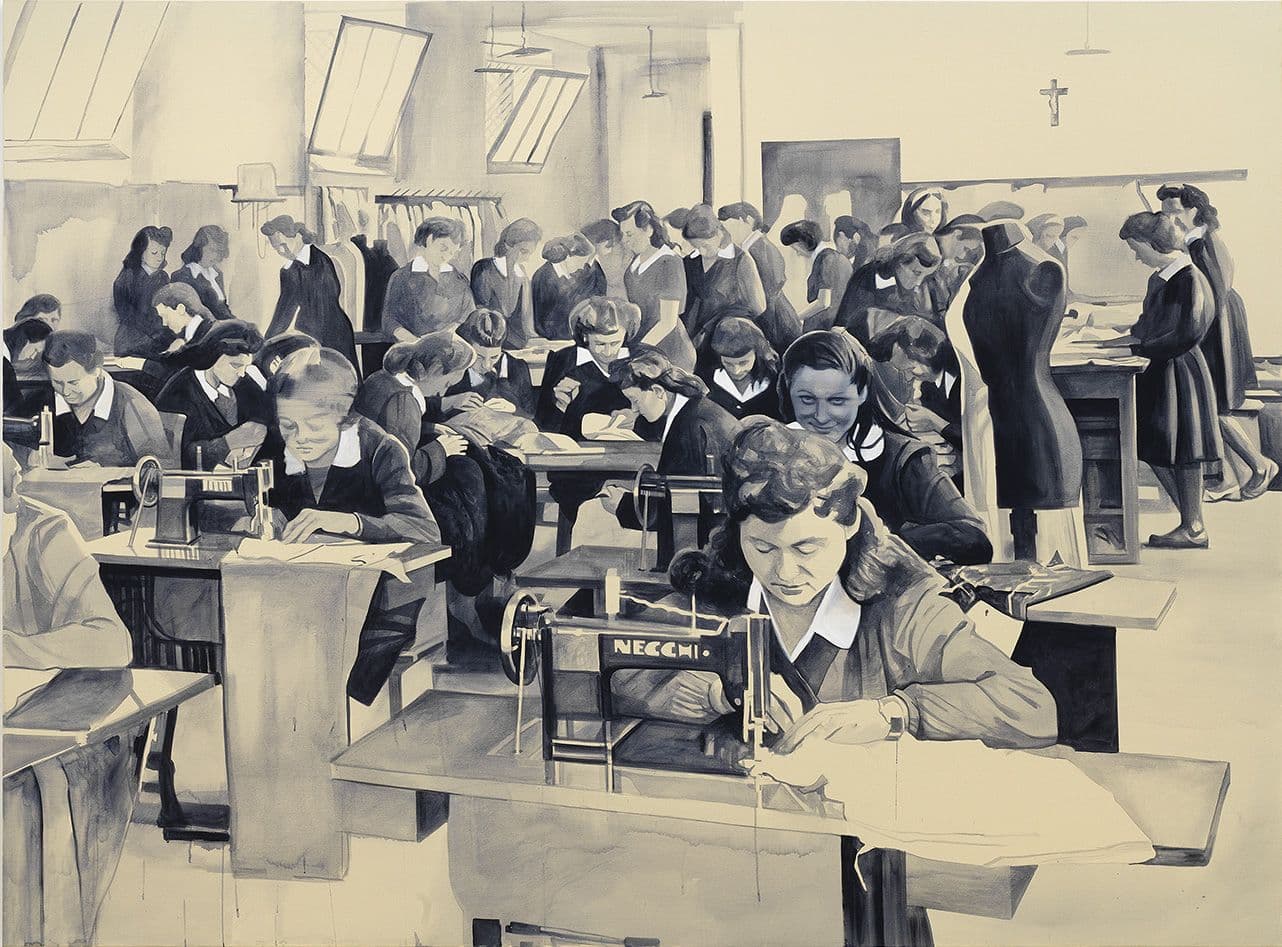
For her first solo show at an Italian art institution, Giulia Andreani is presenting L'improduttiva, a project that features a cohesive body of new work, with large-scale paintings and watercolours, conceived for the South Room of Collezione Maramotti.
Andreani’s work grows out of collective memories, fragments of history at risk of being lost, which the artist recovers and transforms into complex pictorial compositions, visual collages constructed through correspondences.
Archives, and the pre-digital objects they hold, are her primary source of inspiration: faded letters, yellowed documents, and above all, black-and white-photographs that the artist selects, gathers and filters in a non-linear way, sifting out their key elements.
Andreani’s work is guided by an unorthodox approach to research, in which images of the past are absorbed and transformed by her artistic subjectivity. It reveals invisible figures and forgotten facts, places, and moments, most of which are indissolubly linked to the historical, social and cultural experience of the female gender. In many of her works, Andreani – who calls herself a feminist painter/researcher – raises questions about how women have been seen and represented in different eras, pointing out the underlying power dynamics and dismantling gender stereotypes. Her practice of “painting with photographs” is fuelled by a mixture of latent tensions and figures from the past, brought back to life as sentinels of the present.
The figures summoned onto her canvases, with settings and titles that put them into surreal contexts, present the viewer not only with a series of effigies, but with a new, disturbing look at History.
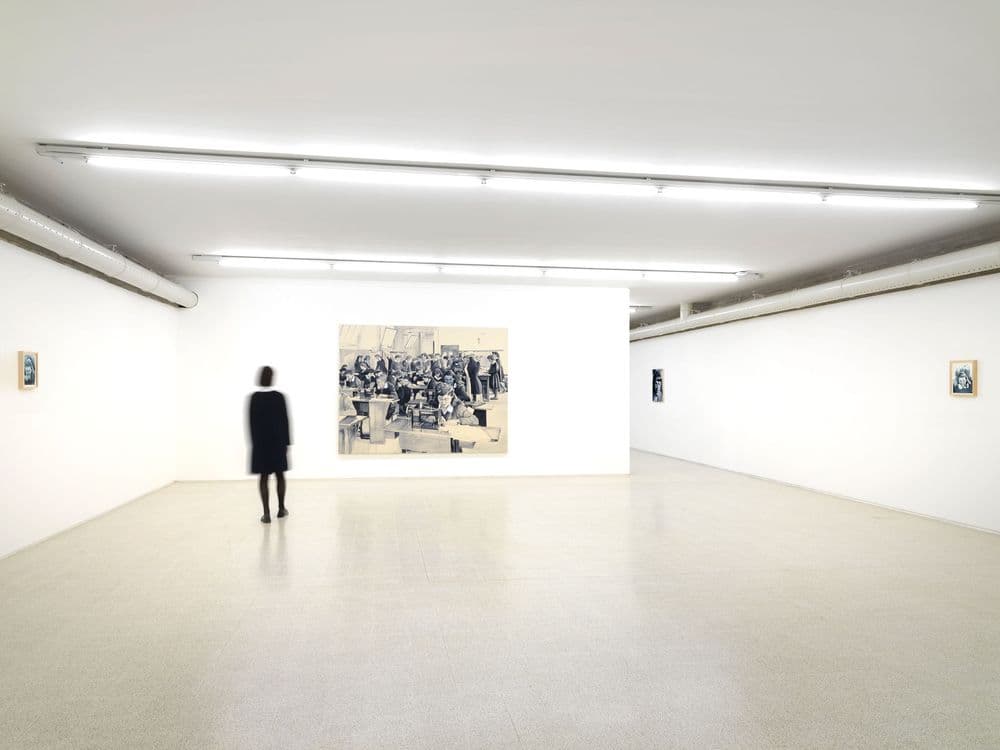
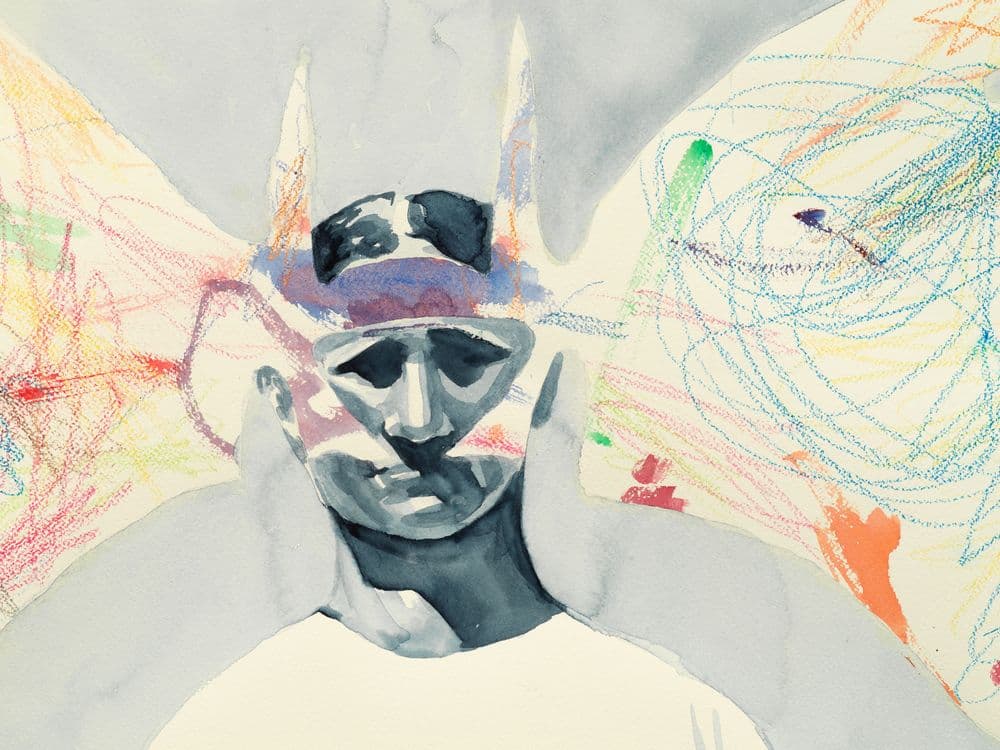
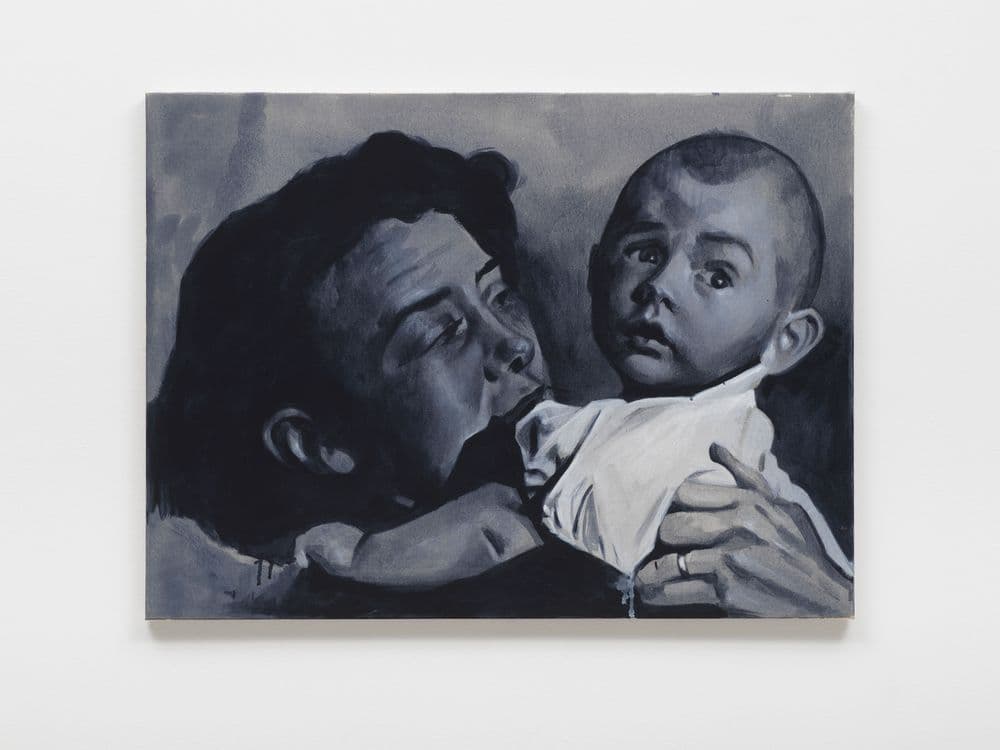

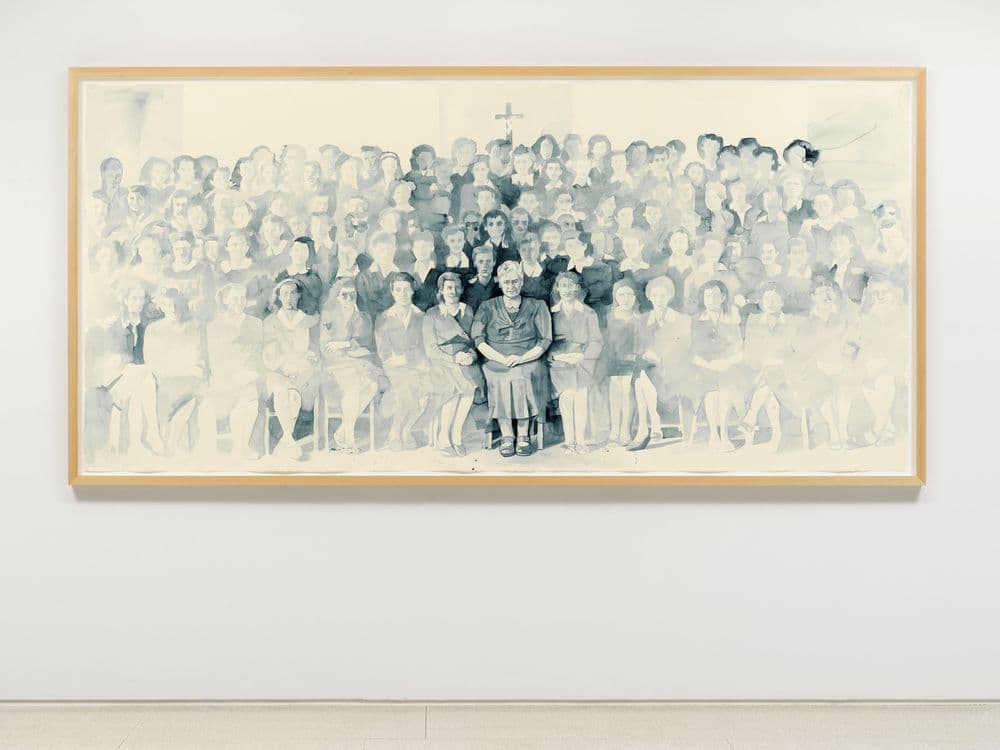
Transforming the technique of photomontage into her own form of painterly expression, Andreani juxtaposes elements drawn from real pictures with other, imaginary details, melding them together as a new iconographic whole. The subjects gradually take shape on the canvas as the artist applies thin layers of a single colour: Payne’s grey, a bluish tone suggestive of some distant twilight, evoking past moments of visual experience that range from cyanotypes to vintage prints.
The conceptual starting point for L'improduttiva was iconographic material from several archives in Reggio Emilia, where Andreani investigated the historical and sociopolitical context of the city, focusing in particular on the ideas of internal exile and imprisonment, so closely tied to women’s history. She explored elements from the World War II era through documents held by Biblioteca Panizzi and by ISTORECO (Institute for the Study of the Resistence and Contemporary Society). Materials from a private archive and from the Biblioteca Scientifica Carlo Livi allowed the artist to delve into the former psychiatric hospital of San Lazzaro; the hidden lives of its inmates, from the late nineteenth century to the 1970s, are brought back into history through a series of seven portraits (“Seven Saints”).
The first work that Andreani made for this project, which significantly lends its title (L’improduttiva, “The Unproductive One”) to the entire exhibition, was inspired by a photo from the early 1940s. It shows female students at the tailoring school established in Reggio Emilia by Giulia Maramotti, mother of the founder of Max Mara – the company originally headquartered in the building on Via Fratelli Cervi that now houses Collezione Maramotti.
The gaze of one seamstress, who looks into the lens with a mocking smile, is the fateful detail, the punctum described by critic and semiologist Roland Barthes, which acts as a detonator and pierces the eye. Andreani singles out and emphasizes it as a key point from which to expand the discourse, directly implicating the viewer. The interference of the image thus becomes a place of anchorage for the artist’s reflection on women’s emancipation and the power of divergence.
A catalogue will be published in conjunction with the show, featuring essays by Lucrezia Calabrò Visconti, curator at Pinacoteca Agnelli in Turin, and philosopher Emanuele Coccia.
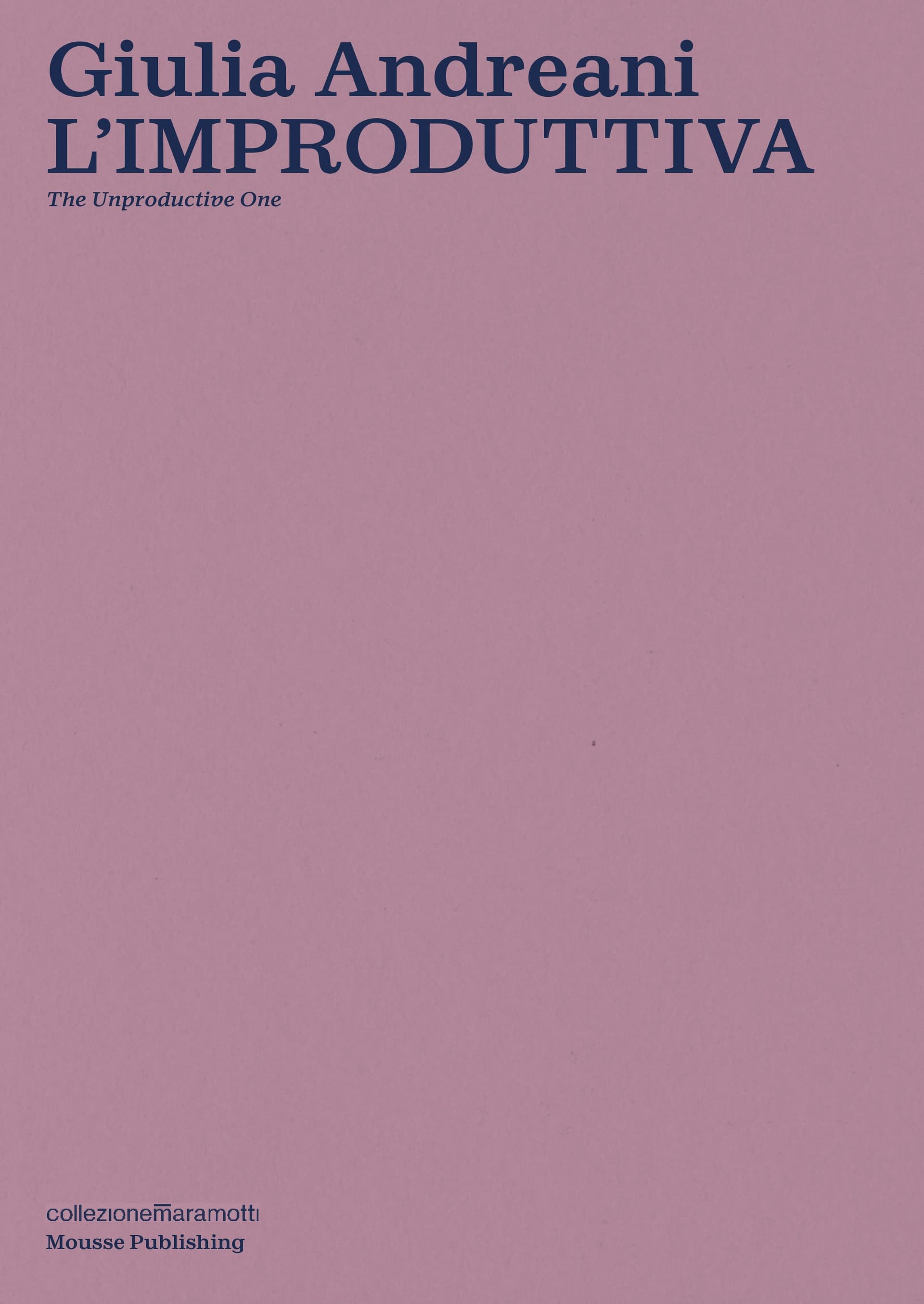
Title: Giulia Andreani. L’improduttiva [The Unproductive One]
Texts by: Lucrezia Calabrò Visconti, Emanuele Coccia, Sara Piccinini
Publisher: Mousse Publishing, Milan
Year: 2024
Number of pages: 112
Dimension: 21 x 28,3 cm
Lingua / Languages: Italian / English